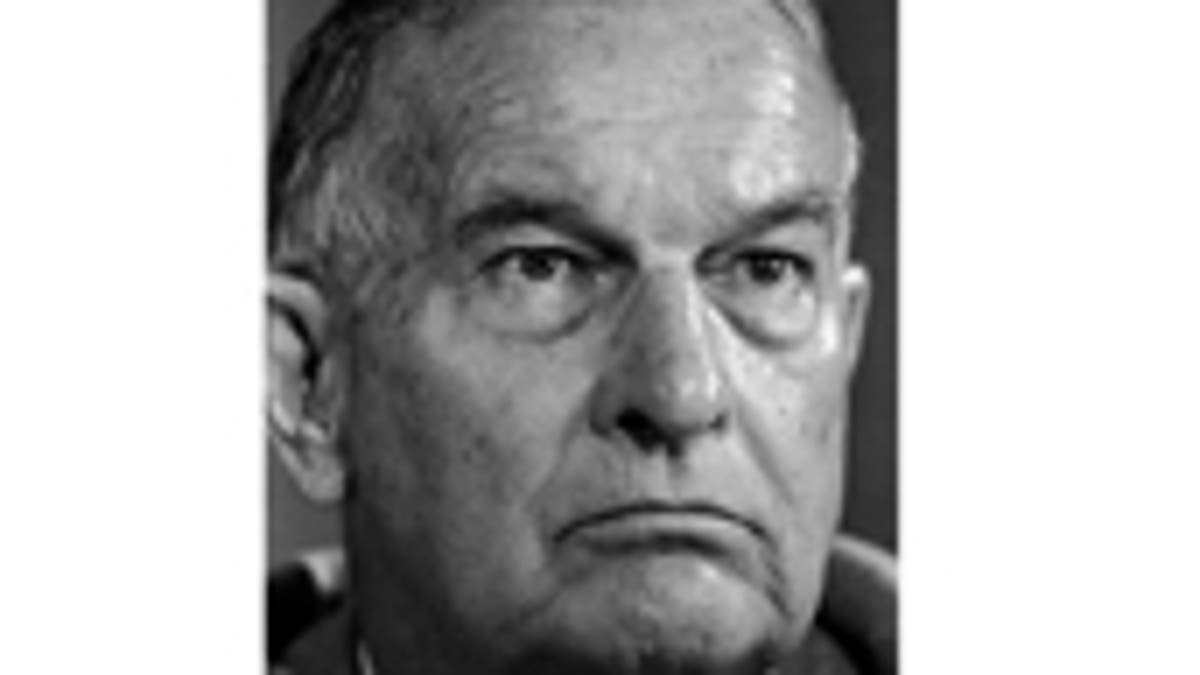
In this Sept. 11, 1981 file photo, Texas Gov. Bill William Clements is shown at a press conference before getting an award in Dallas. (AP)
AUSTIN, Texas -- Former Gov. Bill Clements, who in 1979 became the first Republican elected governor in Texas since Reconstruction and whose belief that state government should operate like a big business helped change the face of Texas politics, has died. He was 94.
Clements, who served two terms as governor despite losing his first re-election bid, died Sunday after what his family said was a brief stay at a Dallas-area hospital. The family said Clements had been ill for several months and grieving the death of his son, who was shot and killed by a neighbor last year.
"It is somewhat fitting that he died Memorial Day Weekend since he so appreciated the opportunities he had to serve his state and country," the family said in a statement.
The Texas House then honored Clements with a moment of silence.
"As the father of the modern day Texas Republican Party, Gov. Clements is responsible for the growth, success and election of Texas Republicans in every corner of our state," Gov. Rick Perry said. "Today, Texans and Americans have lost a leader whose leadership, service and patriotism were unparalleled."
Clements looked to completely change the face of Texas politics when he took office in 1979. He saw his first term in office as a major change in the way the state operated.
"It is the largest business in Texas and yet we run it like it was a soda water stand -- or a barbecue stand," Clements said shortly before turning over the chief executive's job to Democrat Mark White, who upset his re-election bid in 1982.
White, a lawyer, was part owner of a barbecue firm in the Central Texas town of Valley Mills.
Clements came back four years later to defeat White.
"I think that what happened in the last four years is without a doubt a new page in our Texas history in the management of our state government," Clements said at the end of his first term.
Clements' second term was marred from the beginning by his involvement in a pay-for-play football scandal at Southern Methodist University, which led the NCAA to suspend the football program for two years. Clements was chairman of the school's governing board between his terms as governor and acknowledged participating in the decision to let the payments continue.
Tragedy struck the Clements family last year when his son, B. Gill Clements, was found shot to death and buried in a shallow grave behind a home adjacent to the Clements' East Texas ranch. B. Gill Clements was apparently shot by a neighbor who was known for using an assault weapon to guard his property. Authorities shot and killed the neighbor.
William Perry Clements Jr. was born and reared in Dallas, attending Highland Park High School where he was an all-state football lineman. He turned down athletic scholarship offers from several colleges to work in South Texas oil fields when his father, a real estate man and farmer, found the Depression tough going.
After eight years as an oil roughneck and driller, he graduated from Southern Methodist in 1939.
In 1947, he and I.P. Larue launched SEDCO Inc. with borrowed funds and two old drilling rigs. He bought out Larue in 1955 for $1.2 million.
SEDCO, an oil and gas drilling company, operated throughout the world with several subsidiaries. SEDCO merged with Schlumberger Limited in 1984 and Clements retired as chairman a year later.
The multimillionaire Dallas oilman turned back early attempts of Texas Republicans to recruit him for statewide political races but worked actively in the party.
He also was active in civic and professional posts, including membership on the board of governors of SMU and the national executive board of the Boy Scouts of America.
After heading Richard Nixon's 1972 presidential campaign in Texas, Clements served as deputy secretary of defense for the U.S. Department of Defense from 1973 to 1977.
At the urging of his wife, Rita, a former national GOP committeewoman he called his "secret weapon," Clements decided to campaign for governor in 1978.
First he swamped Ray Hutchinson of Dallas, former state GOP chairman, in the party primary. Then he defeated Democrat John Hill by 16,900 votes in November 1978.
Clements warned Texas lawmakers about what he called their "letter to Santa Claus" attitude toward state revenues based largely on oil and gas taxes, which later turned downward.
After the 1979 legislative session, Clements bragged about a .760 batting average on his legislative requests.
His chief regret, he said in 1983, was to leave unfinished the task of the Texas 2000, a blue ribbon committee he commissioned to chart the state's priorities through the rest of the century.
"I would say the inability to complete this look into the future, this ability to have a vision of where we are going and how we are going to get there could well be the single most important regret that I have," Clements told reporters.
Within months of leaving office, Clements underwent hip joint replacement surgery to correct an old injury that bothered him throughout his political campaigns. He quickly recovered and soon was back in political and civic circles.
President Ronald Reagan named him a member of the Blue Ribbon Defense Panel that looked into the nation's Central American activities.
In June 2009, Clements gave $100 million to UT Southwestern Medical Center in Dallas, the largest single gift in the medical research center's 66-year history. Clements said he wanted to help UT Southwestern continue to encourage scientific discovery and innovation, prepare the next generation of doctors and ensure the delivery of world-class medical care.
In his later years, Clements raised cattle and was a Texas history buff.
He is survived by his wife, Rita, and a daughter from a previous marriage, Nancy Clements Seay.












































